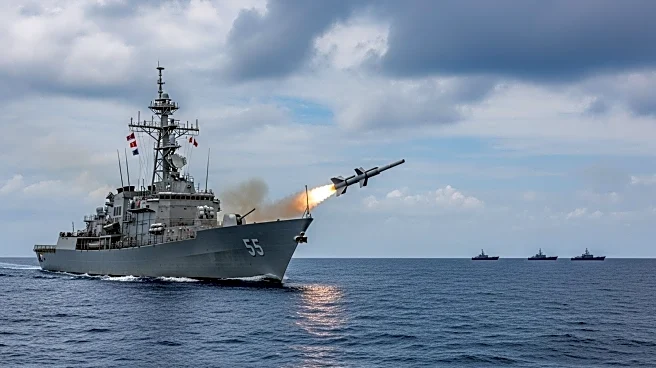What's Happening?
The Trump administration has launched military strikes against suspected drug boats in the Caribbean, targeting Venezuelan gangs such as Tren de Aragua. President Trump has claimed that these operations resulted in the deaths of 11 gang members, although no evidence has been provided to substantiate these claims. The administration's approach marks a significant shift from traditional interdiction methods, which focused on arresting individuals and seizing cargo to gather intelligence. The strikes have raised legal and ethical concerns, with experts questioning their effectiveness and legality.
Why It's Important?
The military strikes represent a dramatic escalation in U.S. tactics against drug cartels, potentially setting a precedent for future operations. This approach could impact U.S. foreign policy and relations with countries in the Caribbean and Latin America, where sensitivity to U.S. military actions is high due to historical interventions. The strikes may also affect the flow of drugs into the U.S., although experts are skeptical about their deterrent effect. The loss of intelligence from arrests could hinder efforts to dismantle drug networks, posing challenges for law enforcement agencies.
What's Next?
The administration may continue its military campaign against drug cartels, but it faces pressure to provide evidence supporting its claims and to address legal concerns. The strikes could lead to changes in smuggling routes, potentially increasing violence in affected regions. The U.S. may need to balance military actions with diplomatic efforts to maintain regional stability and cooperation. The effectiveness of this strategy will likely be scrutinized by lawmakers and international observers.
Beyond the Headlines
The use of military force against civilian narcotraffickers raises ethical questions about extrajudicial killings and due process. The strikes could provoke nationalist backlash in affected countries, complicating diplomatic relations. The approach may also influence global perceptions of U.S. counter-narcotics strategies, potentially affecting international cooperation in combating drug trafficking.








